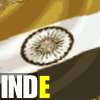 On the occasion of his visit in Paris, the Euro-India group (EIEBG) is glad to invite you for a special late-breakfast with the Indian chief economic advisor : Kaushik Basu the discussion will be intoduced by Dr. Jean-Joseph Boillot. This event will take place on Saturday January 15, 2011 - 11am-1pm...
On the occasion of his visit in Paris, the Euro-India group (EIEBG) is glad to invite you for a special late-breakfast with the Indian chief economic advisor : Kaushik Basu the discussion will be intoduced by Dr. Jean-Joseph Boillot. This event will take place on Saturday January 15, 2011 - 11am-1pm...
In the context of a fast recovery in 2010 (+8,8%), and despite a strong consensus about the 2011 growth (around 8%), the Indian economy is facing some uncertainties : inflation, inflow of hot money, fiscal adjustment etc. This meeting will offer the opportunity to exchange openly with a small group of economic and business leaders in Paris.
Place : the world oldest café, Le Procope (salon Lafayette) – 13 rue de l’ancienne comédie - 75006
Participation 20€. Please register to : EIEBGcom@gmail.com
Due to a limited number of seats, only the first inscriptions will be served
Recent information about the Indian Economy: additional inflation comes with rapid growth, says Basu Source: Financial Express, Jan 03, 2011
India’s policymakers are now resigned to the fact that the country's fast-growing economy will have to live with a spike of up to 2 percentage points in the annual headline inflation rate. This would translate into a new comfort range of 6-7% for inflation for the long-term against last-decade's around 5% – a proposition fraught with political implications. In an exclusive interview, chief economic advisor Kaushik Basu told FE: “We will probably have to live with a little higher inflation. When a country grows very rapidly, there is inevitably a tendency for domestic prices to catch up with international prices. We know from purchasing power parity calculations that Indian prices are about a third to a fourth of those in industrialised nations. If, over the next 30 years, we are going to break into the bottom ranks of industrialised nations, there will inevitably be a bit of catch-up on prices. This could mean an additional 1.5-2% inflation per annum, which we will have to get used to as a concomitant of rapid growth. He said increase in prices of certain protein foods (meat, milk and egg) is an episodic phenomenon caused by supply disruptions and the resultant speculative build-up. From a long-term perspective, however, the fact that the current inflation scenario looked worse has more to do with changes that are more permanent in nature, like deterioration in the global commodity price scenario. The domestic prices of most commodities are now virtually determined outside India.
He said increase in prices of certain protein foods (meat, milk and egg) is an episodic phenomenon caused by supply disruptions and the resultant speculative build-up. From a long-term perspective, however, the fact that the current inflation scenario looked worse has more to do with changes that are more permanent in nature, like deterioration in the global commodity price scenario. The domestic prices of most commodities are now virtually determined outside India.
Annual inflation hovered around a rather permanent looking 5% in the decade up to 2006-07, a decline from 8-9% in the previous decade. The inflation stood at 7.48% in November. That the government now accepts a higher rate of inflation does not mean it is abdicating its responsibility to curb it. In his new-year address to the nation, Prime Minister Manmohan Singh vowed to re-double efforts to contain inflation. Also, the RBI which has raised key interest rates six times since March could look at further monetary tightening if the inflation remains stubbornly high. Basu points out that in today’s globalised world the efficacy of monetary policy is by definition less. While Basu says spurt in food prices is episodic, e conomists like Crisil's DK Joshi believe food price change is also structural and prices could remain high for the next couple of years.
On the occasion of his visit in Paris, the Euro-India group (EIEBG) is glad to invite you for a special late-breakfast with the Indian chief economic advisor : Kaushik Basu the discussion will be intoduced by Dr. Jean-Joseph Boillot. This event will take place on Saturday January 15, 2011 - 11am-1pm
In the context of a fast recovery in 2010 (+8,8%), and despite a strong consensus about the 2011 growth (around 8%), the Indian economy is facing some uncertainties : inflation, inflow of hot money, fiscal adjustment etc. This meeting will offer the opportunity to exchange openly with a small group of economic and business leaders in Paris.
Place : the world oldest café, Le Procope (salon Lafayette) – 13 rue de l’ancienne comédie - 75006
Participation 20€. Please register to : EIEBGcom@gmail.com
Due to a limited number of seats, only the first inscriptions will be served
Recent information about the Indian Economy: additional inflation comes with rapid growth, says Basu Source: Financial Express, Jan 03, 2011
India’s policymakers are now resigned to the fact that the country's fast-growing economy will have to live with a spike of up to 2 percentage points in the annual headline inflation rate. This would translate into a new comfort range of 6-7% for inflation for the long-term against last-decade's around 5% – a proposition fraught with political implications. In an exclusive interview, chief economic advisor Kaushik Basu told FE: “We will probably have to live with a little higher inflation. When a country grows very rapidly, there is inevitably a tendency for domestic prices to catch up with international prices. We know from purchasing power parity calculations that Indian prices are about a third to a fourth of those in industrialised nations. If, over the next 30 years, we are going to break into the bottom ranks of industrialised nations, there will inevitably be a bit of catch-up on prices. This could mean an additional 1.5-2% inflation per annum, which we will have to get used to as a concomitant of rapid growth.
He said increase in prices of certain protein foods (meat, milk and egg) is an episodic phenomenon caused by supply disruptions and the resultant speculative build-up. From a long-term perspective, however, the fact that the current inflation scenario looked worse has more to do with changes that are more permanent in nature, like deterioration in the global commodity price scenario. The domestic prices of most commodities are now virtually determined outside India.
Annual inflation hovered around a rather permanent looking 5% in the decade up to 2006-07, a decline from 8-9% in the previous decade. The inflation stood at 7.48% in November. That the government now accepts a higher rate of inflation does not mean it is abdicating its responsibility to curb it. In his new-year address to the nation, Prime Minister Manmohan Singh vowed to re-double efforts to contain inflation. Also, the RBI which has raised key interest rates six times since March could look at further monetary tightening if the inflation remains stubbornly high. Basu points out that in today’s globalised world the efficacy of monetary policy is by definition less. While Basu says spurt in food prices is episodic, e conomists like Crisil's DK Joshi believe food price change is also structural and prices could remain high for the next couple of yearsBreakfast with Kaushik Basu
On the occasion of his visit in Paris, the Euro-India group (EIEBG) is glad to invite you for a special late-breakfast with the Indian chief economic advisor : Kaushik Basu the discussion will be intoduced by Dr. Jean-Joseph Boillot. This event will take place on Saturday January 15, 2011 - 11am-1pm
In the context of a fast recovery in 2010 (+8,8%), and despite a strong consensus about the 2011 growth (around 8%), the Indian economy is facing some uncertainties : inflation, inflow of hot money, fiscal adjustment etc. This meeting will offer the opportunity to exchange openly with a small group of economic and business leaders in Paris.
Place : the world oldest café, Le Procope (salon Lafayette) – 13 rue de l’ancienne comédie - 75006
Participation 20€. Please register to : EIEBGcom@gmail.com
Due to a limited number of seats, only the first inscriptions will be served
Recent information about the Indian Economy: additional inflation comes with rapid growth, says Basu Source: Financial Express, Jan 03, 2011
India’s policymakers are now resigned to the fact that the country's fast-growing economy will have to live with a spike of up to 2 percentage points in the annual headline inflation rate. This would translate into a new comfort range of 6-7% for inflation for the long-term against last-decade's around 5% – a proposition fraught with political implications. In an exclusive interview, chief economic advisor Kaushik Basu told FE: “We will probably have to live with a little higher inflation. When a country grows very rapidly, there is inevitably a tendency for domestic prices to catch up with international prices. We know from purchasing power parity calculations that Indian prices are about a third to a fourth of those in industrialised nations. If, over the next 30 years, we are going to break into the bottom ranks of industrialised nations, there will inevitably be a bit of catch-up on prices. This could mean an additional 1.5-2% inflation per annum, which we will have to get used to as a concomitant of rapid growth.
He said increase in prices of certain protein foods (meat, milk and egg) is an episodic phenomenon caused by supply disruptions and the resultant speculative build-up. From a long-term perspective, however, the fact that the current inflation scenario looked worse has more to do with changes that are more permanent in nature, like deterioration in the global commodity price scenario. The domestic prices of most commodities are now virtually determined outside India.
Annual inflation hovered around a rather permanent looking 5% in the decade up to 2006-07, a decline from 8-9% in the previous decade. The inflation stood at 7.48% in November. That the government now accepts a higher rate of inflation does not mean it is abdicating its responsibility to curb it. In his new-year address to the nation, Prime Minister Manmohan Singh vowed to re-double efforts to contain inflation. Also, the RBI which has raised key interest rates six times since March could look at further monetary tightening if the inflation remains stubbornly high. Basu points out that in today’s globalised world the efficacy of monetary policy is by definition less. While Basu says spurt in food prices is episodic, e conomists like Crisil's DK Joshi believe food price change is also structural and prices could remain high for the next couple of years..




